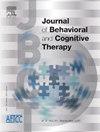Academic procrastination: A systematic review of causal factors and interventions
IF 1.6
Q3 PSYCHIATRY
引用次数: 0
Abstract
Academic procrastination remains a significant barrier to student success, impacting both academic performance and mental health. This systematic review addresses the core factors contributing to academic procrastination, including fear of failure, perfectionism, and difficulties in emotional regulation, which lead to students delaying academic tasks. The study employs the PRISMA methodology, synthesizing findings from 27 empirical studies published between 2014 and 2024 to assess intervention efficacy. Cognitive-behavioral therapy (CBT) and motivational strategies emerged as effective approaches in reducing procrastination by addressing unrealistic thought patterns and enhancing self-regulation skills. Furthermore, technology-assisted interventions, such as digital planning tools, have shown promise in supporting students’ time management. In conclusion, this review underscores the importance of a personalized, multidimensional approach that integrates psychological, motivational, and technological strategies to optimize student outcomes and minimize procrastination.
学业拖延:因果因素和干预措施的系统回顾
学习拖延症仍然是学生成功的一个重要障碍,它既影响学习成绩,也影响心理健康。本文系统分析了导致学业拖延的核心因素,包括对失败的恐惧、完美主义和情绪调节困难,这些因素导致学生拖延学业任务。本研究采用PRISMA方法,综合了2014 - 2024年间发表的27项实证研究的结果,对干预效果进行了评估。认知行为疗法(CBT)和动机策略是通过解决不现实的思维模式和提高自我调节技能来减少拖延症的有效方法。此外,技术辅助干预措施,如数字规划工具,在支持学生的时间管理方面显示出了希望。总之,这篇综述强调了一种个性化的、多维的方法的重要性,这种方法整合了心理、动机和技术策略,以优化学生的成绩,最大限度地减少拖延。
本文章由计算机程序翻译,如有差异,请以英文原文为准。
求助全文
约1分钟内获得全文
求助全文
来源期刊

Journal of Behavioral and Cognitive Therapy
Psychology-Clinical Psychology
CiteScore
3.30
自引率
0.00%
发文量
38
审稿时长
60 days
 求助内容:
求助内容: 应助结果提醒方式:
应助结果提醒方式:


